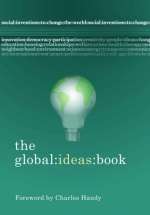 Ned Hamson passed on a mention of a new book by Parker Palmer: A Hidden Wholeness. I haven't heard of him, or read his previous books, but various snippets in the blurbs about them speak to me, and to something I just happened to be thinking about at the moment. You know, how to just be yourself and follow your own calling. So, here are some things others are saying about the man's writings: Ned Hamson passed on a mention of a new book by Parker Palmer: A Hidden Wholeness. I haven't heard of him, or read his previous books, but various snippets in the blurbs about them speak to me, and to something I just happened to be thinking about at the moment. You know, how to just be yourself and follow your own calling. So, here are some things others are saying about the man's writings:The old Quaker adage, "Let your life speak," spoke to author Parker J. Palmer when he was in his early 30s. It summoned him to a higher purpose, so he decided that henceforth he would live a nobler life. "I lined up the most elevated ideals I could find and set out to achieve them," he writes. "The results were rarely admirable, often laughable, and sometimes grotesque.... I had simply found a 'noble' way of living a life that was not my own, a life spent imitating heroes instead of listening to my heart."
Thirty years later, Palmer now understands that learning to let his life speak means "living the life that wants to live in me." It involves creating the kind of quiet, trusting conditions that allow a soul to speak its truth. It also means tuning out the noisy preconceived ideas about what a vocation should and shouldn't be so that we can better hear the call of our wild souls. ...
Palmer seeks to help us "rejoin soul and role," so that individuals and communities can be healed from the ravages of consumerism, injustice and violence. No small task, yet in classic Palmer style, this mission is fleshed out with stories, poems, personal confessions and a plan--concrete steps for creating "circles of trust" where honest, open sharing allows each person's "inner teacher" to show up. (Ground rules: "no fixing, no saving, no advising, no setting each other straight.") Palmer's concern is that too many people have "divided lives," with personal values that don't match what they are asked to do in the world to succeed. ...
Never naive, Palmer warns that these "circles of trust" are not management tools that organizations can force on employees for some grand motive, such as crisis control or increased productivity. They are the opposite of quick fixes--places where we sit and wait for our souls to tell the truth. ...
Here he speaks to our yearning to live undivided lives--lives that are congruent with our inner truth--in a world filled with the forces of fragmentation. ...
This is a personal, human, moving, insightful, practical work on the discovery of True Will, and living life in conformity with it. ... and some quotes from what he actually wrote himself:"Before you tell your life what you intend to do with it, listen for what it intends to do with you. Before you tell your life what truths and values you have decided to live up to, let your life tell you what truths you embody, what values you represent."
"True self, when violated, will always resist us, sometimes at great cost, holding our lives in check until we honor its truth."
"...self-care is never a selfish act - it is simply good stewardship of the only gift I have, the gift I was put on earth to offer to others."
"The attempt to live by the reality of our own nature, which means our limits as well as our potentials, is a profoundly moral regimen."
"One dwells with God by being faithful to one's nature. One crosses God by trying to be something one is not. Reality - including one's own - is divine, to be not defied but honored." And, yes, it is about finding "the place where our deep gladness meets the world's deep need". Yes, I don't doubt it. There's a magic that is available by simultaneously connecting with what we're most inspired to do and what we notice most is needed in the world. And probably finding that they're one and the same thing. Every human being is very much needed in the world, and when we discover what we're needed for, and how exciting we find that to be, life has meaning. And we might live it undivided.
[ Inspiration | 2004-09-09 11:52 | | PermaLink ] More >
|
|
 The yearly awards winners were announced by the Institute for Social Inventions last week in London. You know, for years the institute has collected innovative ideas for many kinds of social change. The ideas appear on the Global Ideas Bank website, and the best ones are published in at least one book every year. And of those, a few are chosen every year to get awards. And there's 1000 pounds for one of them. I just received the book of this year's ideas in the mail. And, well, we go way back. Not just because I was one of those awards winners quite a few years ago. But also because I was very involved in getting the website up originally, and getting the yearly ideas imported into it for years. And because Nicholas Albery who was the driving force behind the institute and the ideas bank became a good friend. Alas, he departed a little too soon, but good people are carrying on the institute, and clever and entertaining ideas are still streaming in. The yearly awards winners were announced by the Institute for Social Inventions last week in London. You know, for years the institute has collected innovative ideas for many kinds of social change. The ideas appear on the Global Ideas Bank website, and the best ones are published in at least one book every year. And of those, a few are chosen every year to get awards. And there's 1000 pounds for one of them. I just received the book of this year's ideas in the mail. And, well, we go way back. Not just because I was one of those awards winners quite a few years ago. But also because I was very involved in getting the website up originally, and getting the yearly ideas imported into it for years. And because Nicholas Albery who was the driving force behind the institute and the ideas bank became a good friend. Alas, he departed a little too soon, but good people are carrying on the institute, and clever and entertaining ideas are still streaming in.
A couple of the awards from this year: The £1,000 Overall Social Innovations Award for 2004 goes to Mahabir Pun, a teacher whose dedication and imagination has brought the internet and telecommunications to some of the remotest communities in the world in Nepal. Using an inspired mix of solar power, tree-based relay systems and wireless technology, the project is helping yak farmers stay in touch, families communicate and, with an expansion into distance learning, children to gain education. See NepalWireless.net for more information.
The Environmental Social Innovations Award for 2004 goes to Kerry Channing, an IT consultant from Brighton, who proposes a footprint or profile for products to allow people to make ethical choices between them. Products would be assessed on their fairness (to workers), their sustainability (can they be recycled, what impact they have) and their health (do they affect the health of humanity or the environment?). In this way, an 'IQ' would be created, allowing for greater transparency in the retail market, and greater choice for consumers. For further information, see the EIQ Profile Those are good projects and ideas. But if you think them a little too serious, check out some of the other clever and funny ideas in the bank that are maybe less likely to happen, like the suggestion to Miniaturise Humans by genetic engineering, in order to save greatly on our resource use. You know, if we were only 50cm tall, we'd consume 1/8 as much food, and would need much less room and smaller cars, etc. Makes a lot of sense, actually, but who's gonna start?
There's a Global Ideas Blog too, passing on a lot of stimulating creativity.
[ Inspiration | 2004-09-09 19:14 | | PermaLink ] More >
|
|
 Ned Hamson passed on a mention of a new book by Parker Palmer: A Hidden Wholeness. I haven't heard of him, or read his previous books, but various snippets in the blurbs about them speak to me, and to something I just happened to be thinking about at the moment. You know, how to just be yourself and follow your own calling. So, here are some things others are saying about the man's writings:
Ned Hamson passed on a mention of a new book by Parker Palmer: A Hidden Wholeness. I haven't heard of him, or read his previous books, but various snippets in the blurbs about them speak to me, and to something I just happened to be thinking about at the moment. You know, how to just be yourself and follow your own calling. So, here are some things others are saying about the man's writings: The yearly awards winners were announced by the Institute for Social Inventions last week in London. You know, for years the institute has collected innovative ideas for many kinds of social change. The ideas appear on the Global Ideas Bank website, and the best ones are published in at least one book every year. And of those, a few are chosen every year to get awards. And there's 1000 pounds for one of them. I just received the book of this year's ideas in the mail. And, well, we go way back. Not just because I was one of those awards winners quite a few years ago. But also because I was very involved in getting the website up originally, and getting the yearly ideas imported into it for years. And because Nicholas Albery who was the driving force behind the institute and the ideas bank became a good friend. Alas, he departed a little too soon, but good people are carrying on the institute, and clever and entertaining ideas are still streaming in.
The yearly awards winners were announced by the Institute for Social Inventions last week in London. You know, for years the institute has collected innovative ideas for many kinds of social change. The ideas appear on the Global Ideas Bank website, and the best ones are published in at least one book every year. And of those, a few are chosen every year to get awards. And there's 1000 pounds for one of them. I just received the book of this year's ideas in the mail. And, well, we go way back. Not just because I was one of those awards winners quite a few years ago. But also because I was very involved in getting the website up originally, and getting the yearly ideas imported into it for years. And because Nicholas Albery who was the driving force behind the institute and the ideas bank became a good friend. Alas, he departed a little too soon, but good people are carrying on the institute, and clever and entertaining ideas are still streaming in.